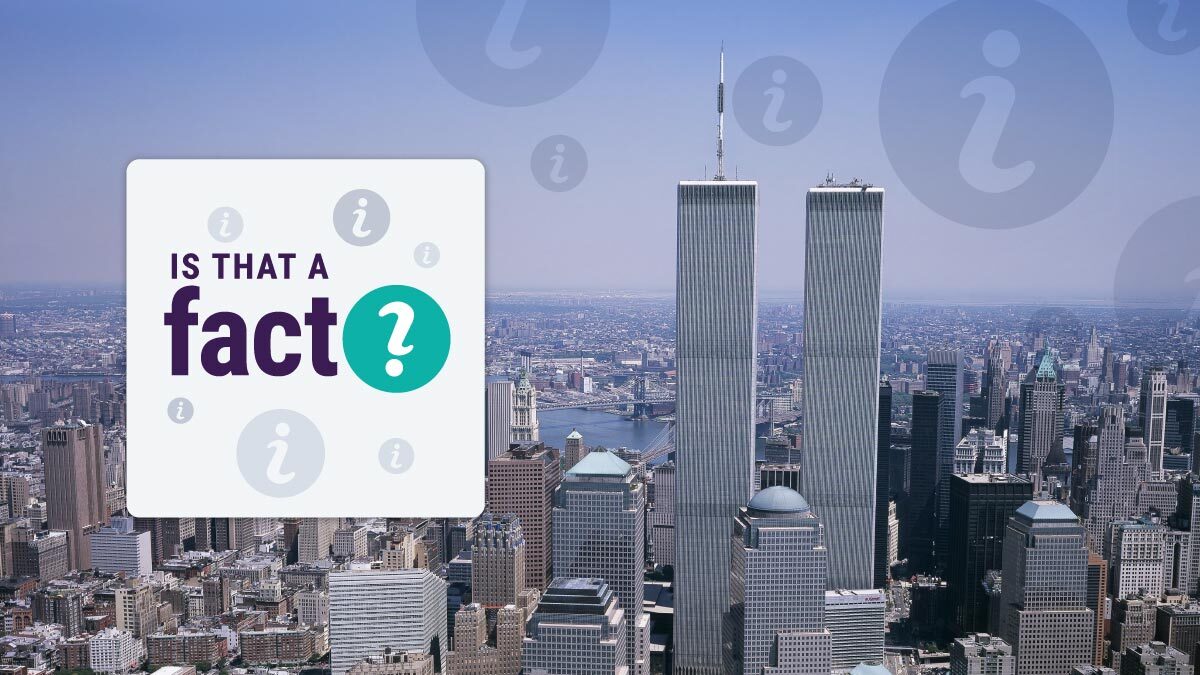
Season two of ‘Is that a fact?’ podcast launches today
We’ve just launched the second season of NLP’s Is that a fact? podcast, and this time we are going beyond examining misinformation’s ability to mislead to look at the origins of false narratives and the actual harm they have caused. The new episodes will explore how fictional information emerges and then bubbles to the surface to misdirect the country’s civic and cultural discourse.
As the 20th anniversary of the 9/11 attacks approach, we look back at the untruths and myths that surround that fateful day. One of the core catalysts of 9/11 misinformation was the film Loose Change. Our first guest, Esquire magazine correspondent John McDermott told us, “remains probably the single most popular piece of conspiracy media ever created.” He explains how the film started a movement of conspiracy theorists that planted the seeds for today’s Qanon believers.
The second guest, James Meigs, former Popular Mechanics editor-in-chief, discussed how his team of journalists debunked many of the myths propagated by Loose Change even before the film came out. “What was really powerful about Loose Change wasn’t the specific claim,” said Meigs. “It was the overall mood of the filmmaking … It had really cool music. It had all this slow motion. It had this very compelling narration, even if a lot of it didn’t make a lot of sense. It was quite powerful to watch.”
9/11 impact: A personal perspective
Our final guest, Ann Van Hine, whose husband was a firefighter killed the day of the terrorist attacks, explained how she deals with the anniversary in personal terms. “Everybody has a part of that day. Everybody knows where they were. Everybody has a memory, but you’re actually talking about the day that my daughter’s dad died, the day my husband died. I told my girls early on, if people started saying weird stuff about September 11th, which happened as time went on, then just blow them out of the water. Just say flat out with no preparation for them, ‘My dad was one of the firefighters killed that day.’ Cause that’ll suck the air out of the room. Not to be mean, but sometimes people need a reality check.”
We hope you’ll listen. Over the rest of the season, we’ll examine false narratives about the misperceptions that Democrats and Republicans have about each other, the Sandy Hook shootings, race relations and more. Please join us every other Wednesday for new episodes of Is that a fact? Listen here or on Spotify, Apple Music, Google Play, iHeartRadio, Stitcher, Amazon Music and wherever podcasts are available.